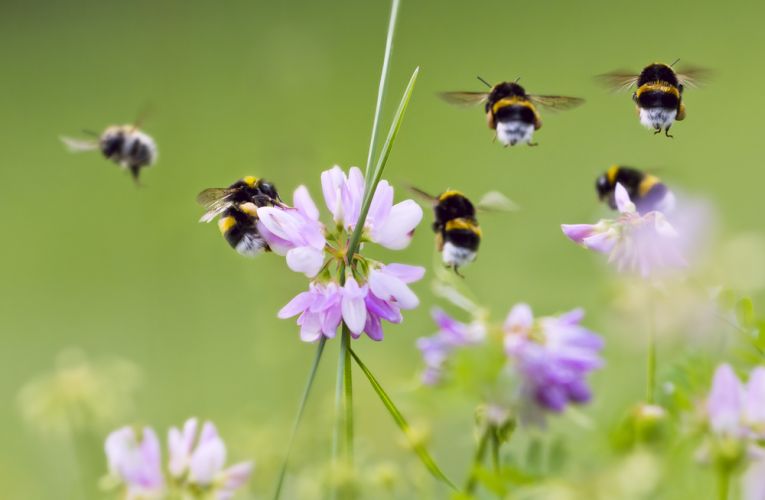Do bees need more than help against neurotoxins? The jury is out until the EU begin their ban on neonicotinoids this weekend. That is a great step in the right direction, preventing the loss of bees on a very large scale, according to many scientific researches into how the individual and the hive is affected. The European Food Standards Agency was last on the agenda with their review of the literature producing an, "unacceptable risk," verdict. Some countries have fought violently to prevent any ban at all (8 of the European 23, against 15 countries in agreement), although the eventual result has to be a ban of some kind.
As bees search the hedgerows of Europe for any flowers at all, or even a nest site in the case of bumblebees, the intensive farm comes into focus. We may need the Northern Hemisphere's 250 Bombus species, if disease continues to kill off our domestic, western Apis mellifera. We already have bee-disease and parasitism in pandemics resembling the bubonic plague in human history. Resistance is futile for the bee, and undeveloped! Nectar loss and disease are probably their biggest problem. However, in the winter, neonicotinoids are allowed! This means that areas with winter wheat and other crops will have those tiny concentrations remaining that cause the bees such neurological problems. These chemicals, just like the old organochlorine (DDT) and organophosphate (malathion) insecticides, linger in the soil, at least, for many years. After the two year ban, there will be little to see in bee "health" improvement. It may seem better, but let's hope we have moved on by that time.
For a start, advice to farmers is a monopoly for those who sell them pesticides. This is hardly a useful step towards achieving objective modernisation of the intensive side of agriculture at least. They do what they are told, otherwise the farm loses profit. Worldwide, we all have the "unsustainable overuse" of deadly poisons throughout our countryside. Without them, the food supply decreases and with rising populations in many parts of the world, that antagonistic position is untenable. Food always seems to win, even if emotion is involved in the GM argument for example. The only winners in the historic bee argument are those plant and animal species that survive in narrow belts, on road verges of all kinds, since 1670, it appears, in the case of tower mustard, Arabis glabra, and those that feed from it. Survival in the face of heavy artificial selection is our only hope in the case of such severe attacks on the physiology of the bee. Professor Dave Goulson of the University of Sussex in the UK offered the basic facts in his article in the Ecologist Magazine.










